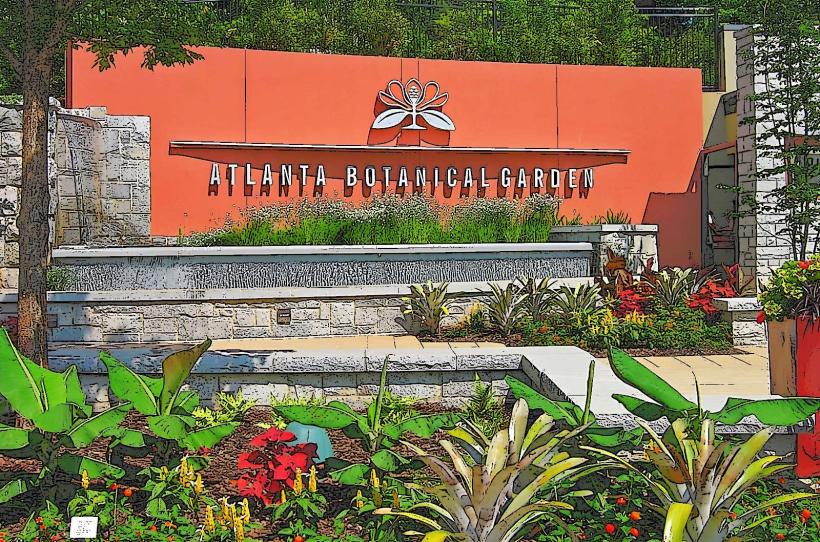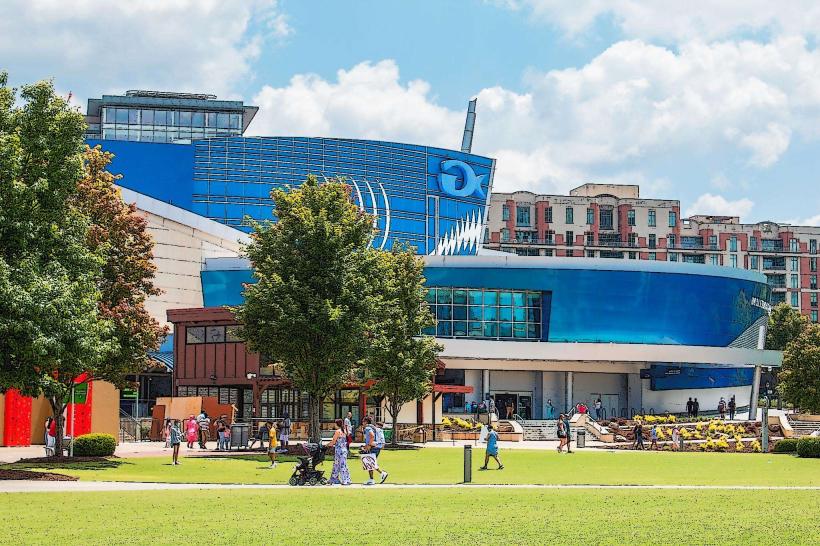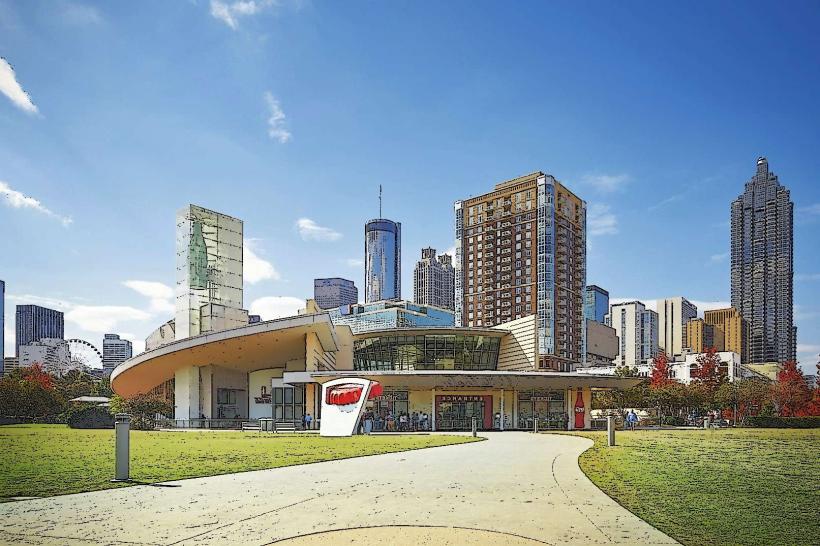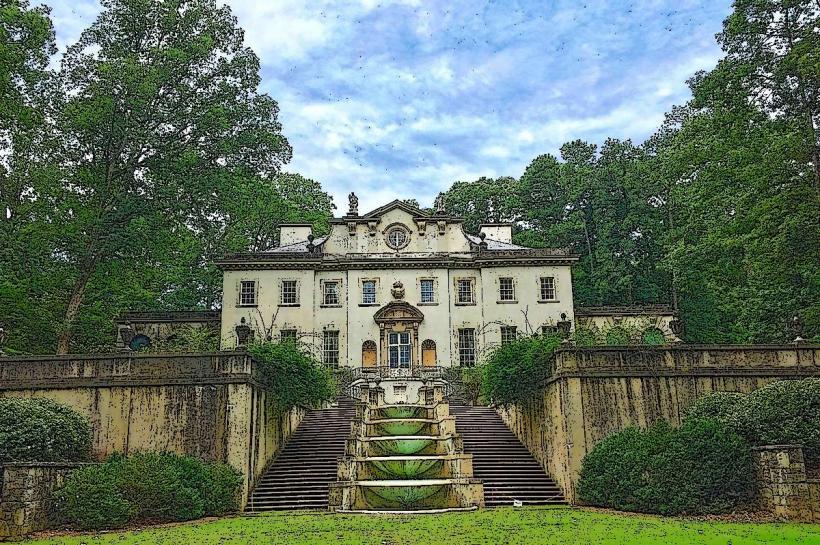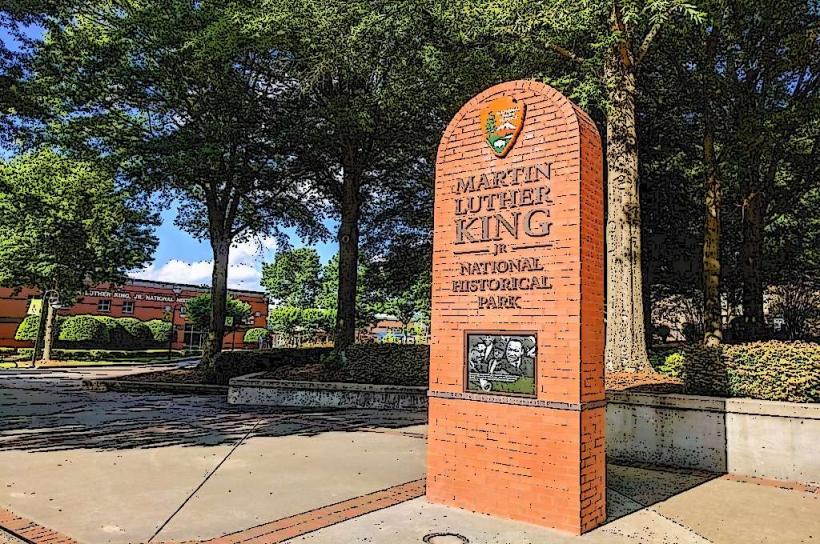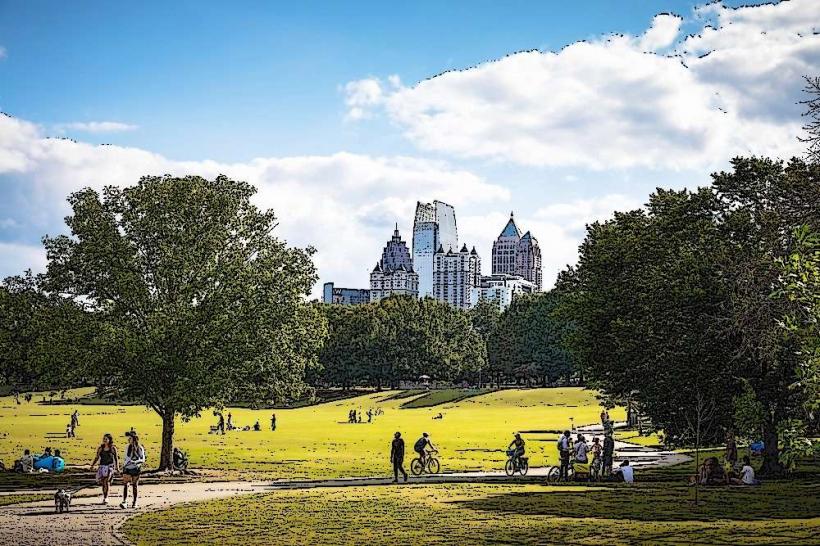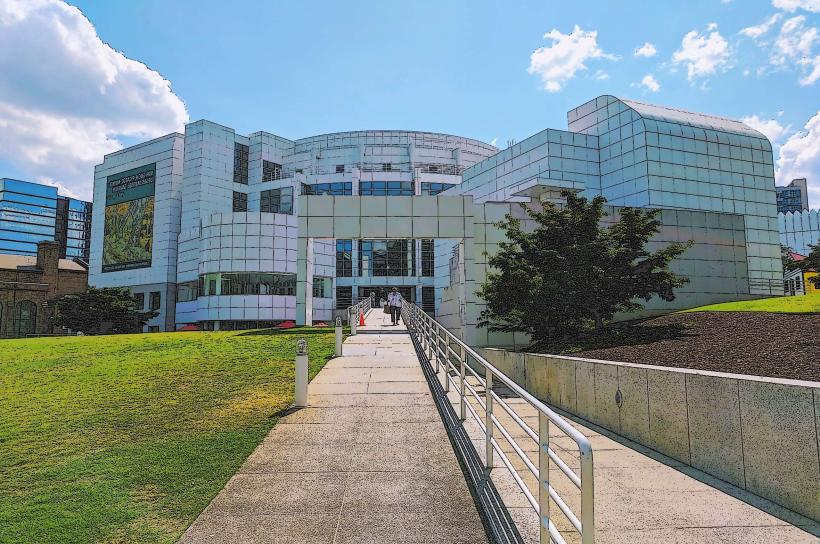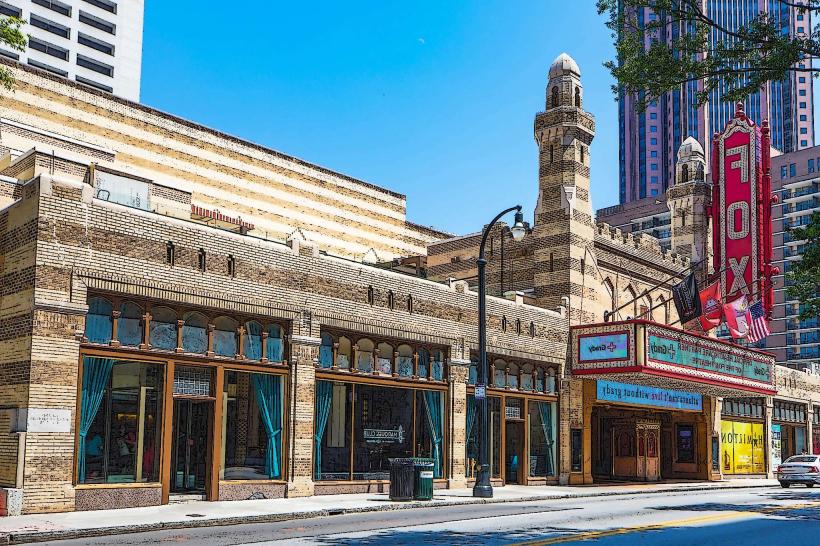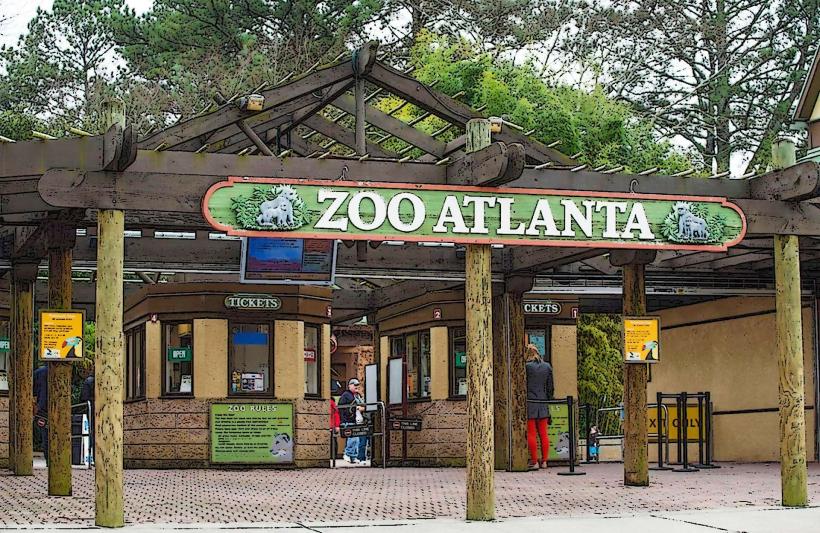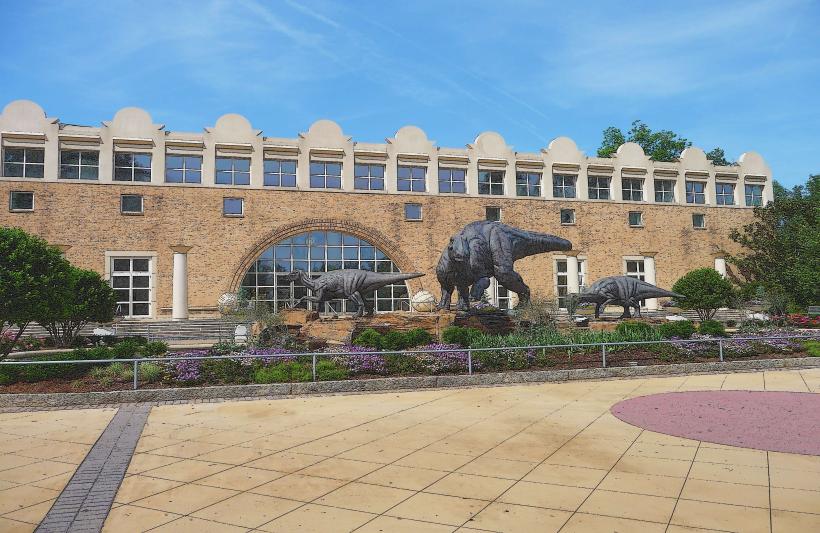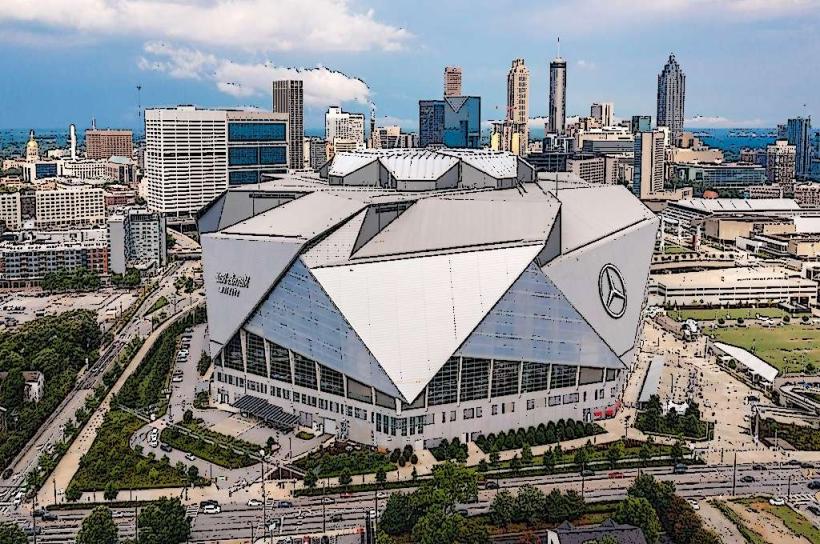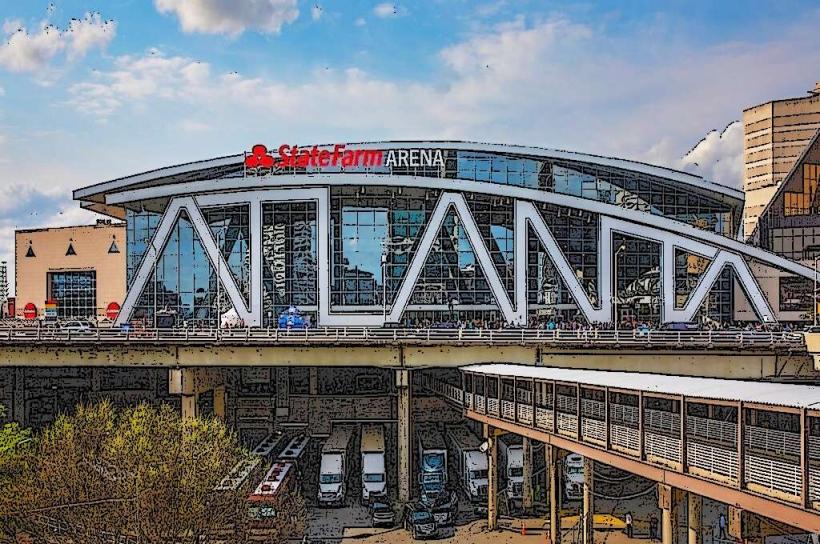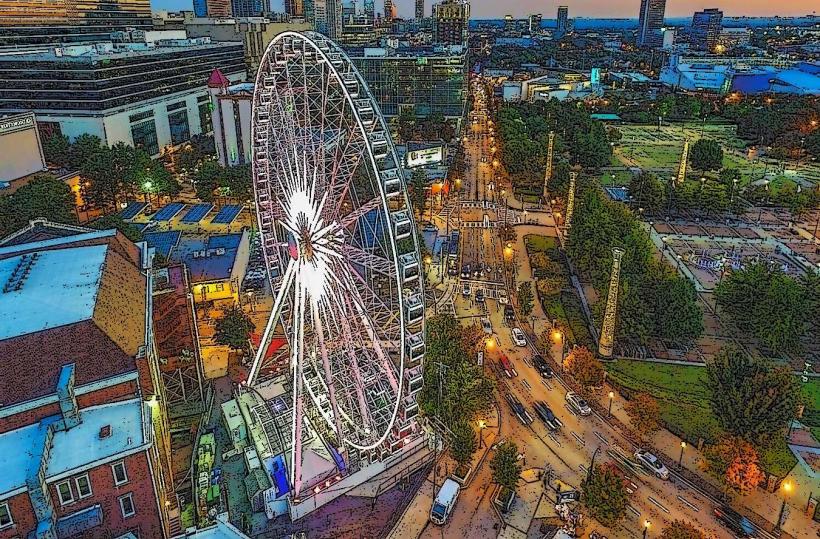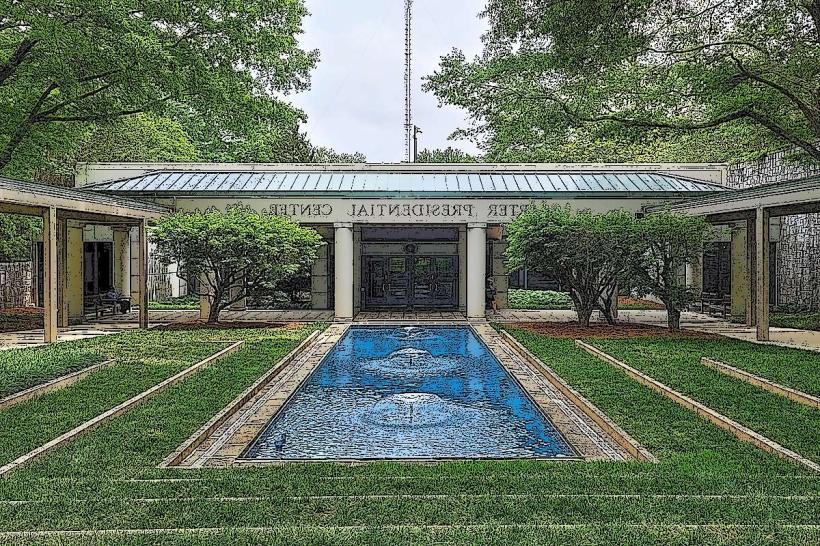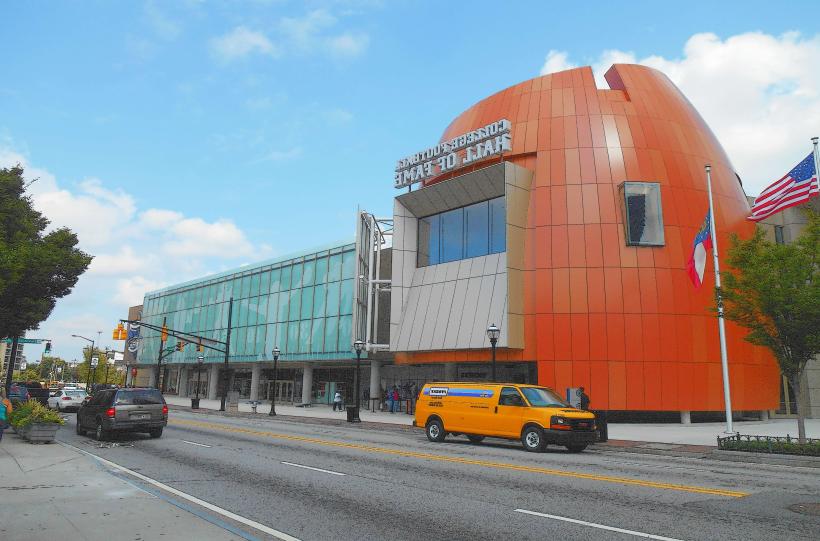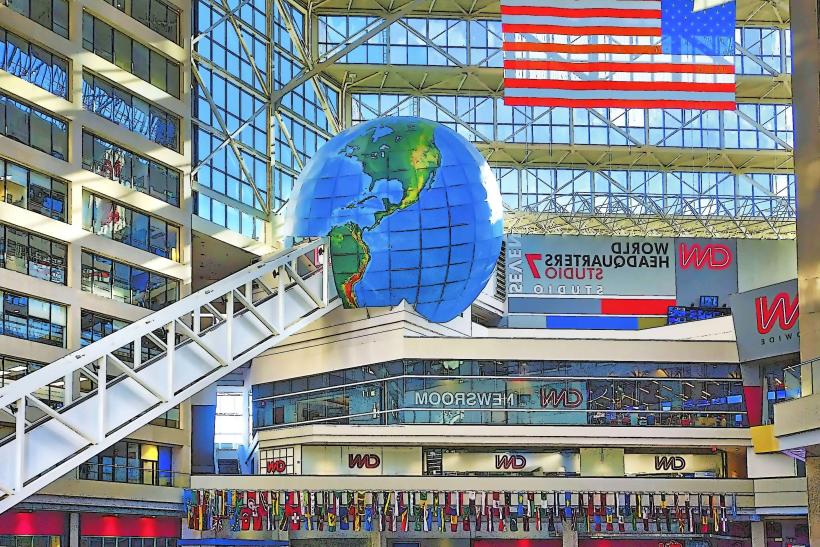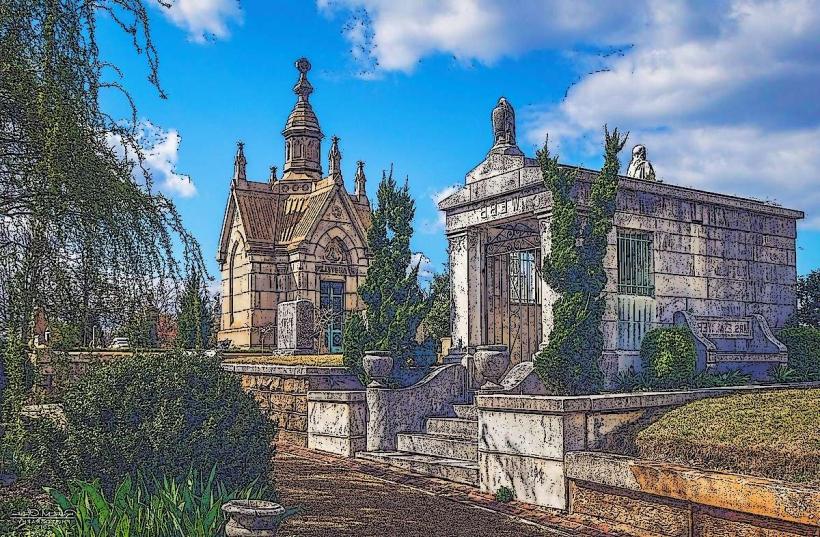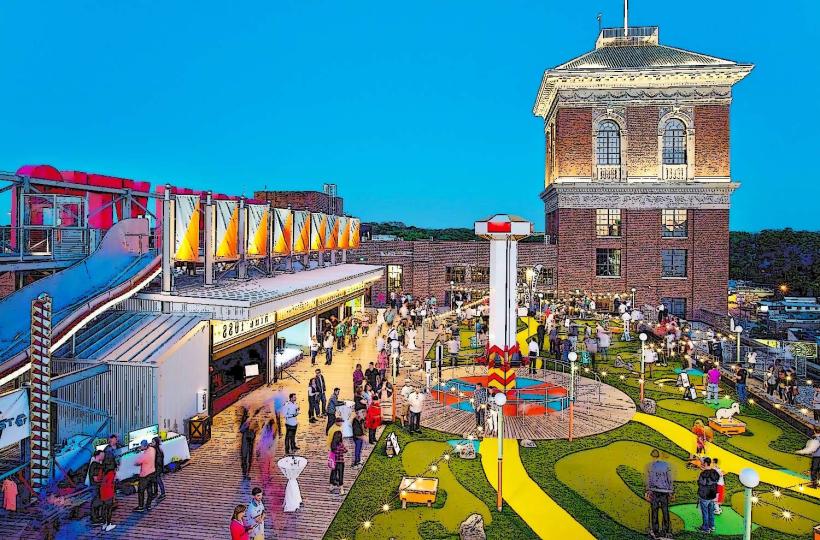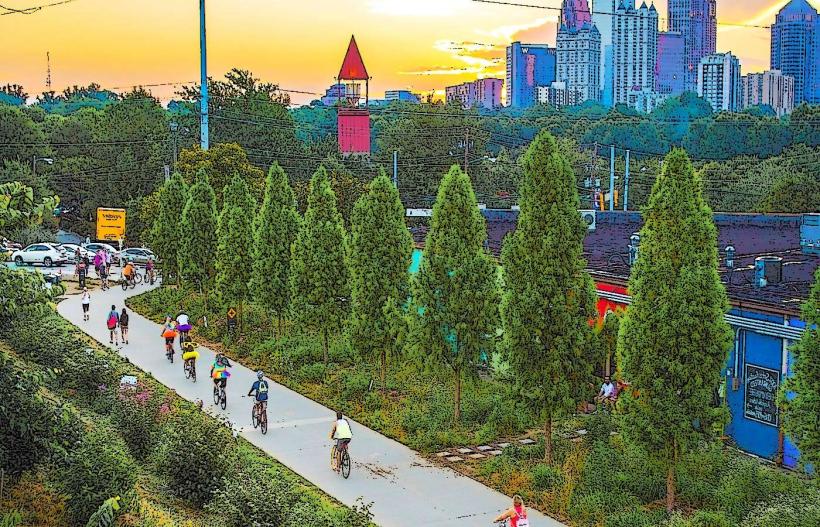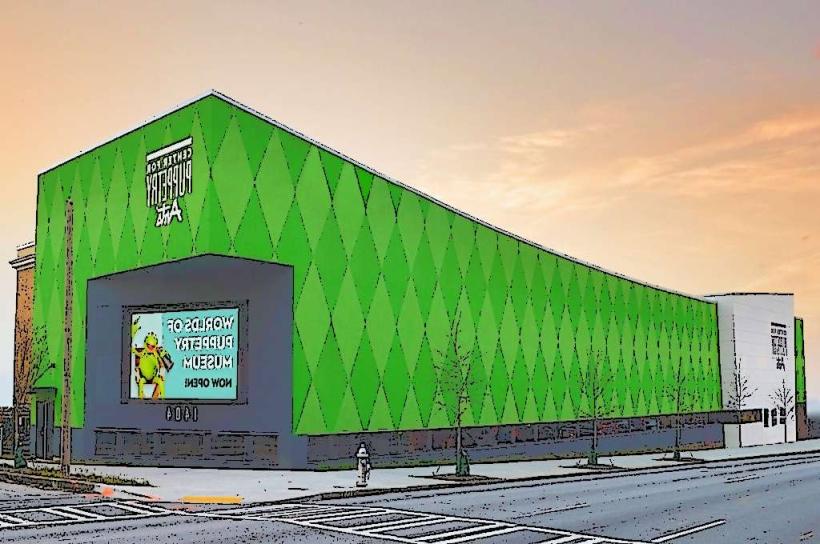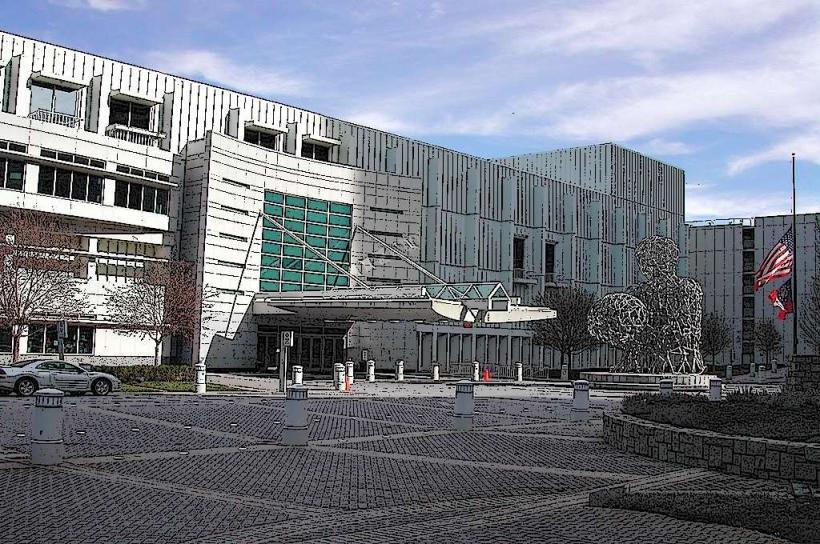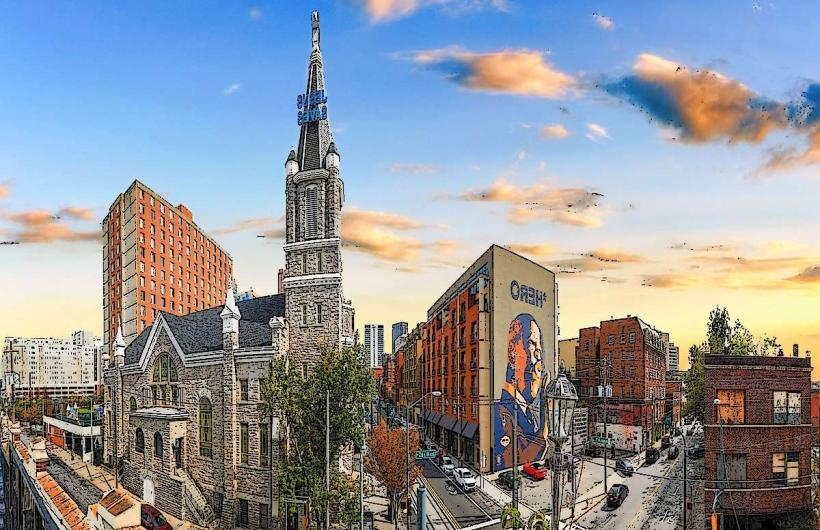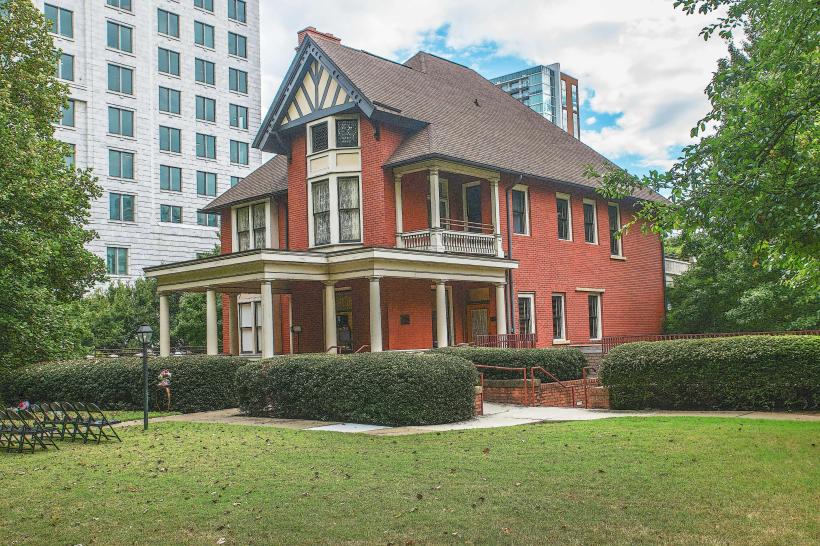Information
Landmark: Centennial Olympic ParkCity: Atlanta
Country: USA Georgia
Continent: North America
Centennial Olympic Park, Atlanta, USA Georgia, North America
Centennial Olympic Park is a 22-acre public park located in downtown Atlanta, Georgia, USA.
It was built as part of the infrastructure for the 1996 Summer Olympics.
Visual Characteristics
The park features large expanses of green lawn, paved walkways, and a central plaza with the Fountain of Rings. The ground surface is primarily concrete and grass. The park's design incorporates open spaces suitable for large gatherings.
Location & Access Logistics
Centennial Olympic Park is situated in the heart of downtown Atlanta, bordered by Marietta Street, Centennial Olympic Park Drive, and Techwood Drive. It is approximately 1 mile west of the Georgia State Capitol building. Parking is available in several paid parking decks surrounding the park, including the Georgia Aquarium Parking Deck and the World of Coca-Cola Parking Deck. The park is accessible via the MARTA public transit system, with the nearest station being the Dome/GWCC/Philips Arena/CNN Center station (Blue and Green Lines), located a 5-minute walk from the park's south entrance.
Historical & Ecological Origin
The park was constructed on the site of former industrial and residential areas, cleared to make way for the 1996 Olympic Games. It was designed by EDAW, Inc. and officially opened in 1996. Its original purpose was to serve as the central gathering place for athletes, spectators, and media during the Olympics, and it has since been redeveloped as a public amenity.
Key Highlights & Activities
Visitors can interact with the Fountain of Rings, a water feature that sprays water in choreographed sequences. Walking and jogging are permitted on the park's paved paths. The park hosts numerous public events, concerts, and festivals throughout the year. Guided walking tours of the park are available through third-party operators.
Infrastructure & Amenities
Restrooms are located within the park. Shade is provided by mature trees and some covered structures. Cell phone signal (4G/5G) is generally strong throughout the park. Food vendors and restaurants are located in the immediate vicinity, particularly along Marietta Street and within adjacent attractions.
Best Time to Visit
For photography, early morning or late afternoon light offers optimal conditions. The park is generally pleasant year-round, but spring (April-May) and fall (September-October) offer mild temperatures. The Fountain of Rings operates on a schedule, with shows typically occurring at specific times throughout the day, especially during warmer months.
Facts & Legends
During the 1996 Olympics, a pipe bomb detonated in the park, resulting in one fatality and over 100 injuries. Despite the incident, the park continued to be a focal point for the Games. A specific tip for visitors is to check the park's official schedule for free events and concerts, which are frequently held during the summer months.
Nearby Landmarks
- Georgia Aquarium (0.2km East)
- World of Coca-Cola (0.3km East)
- National Center for Civil and Human Rights (0.4km South)
- CNN Center (0.5km Southeast)
- Mercedes-Benz Stadium (0.7km Southwest)

